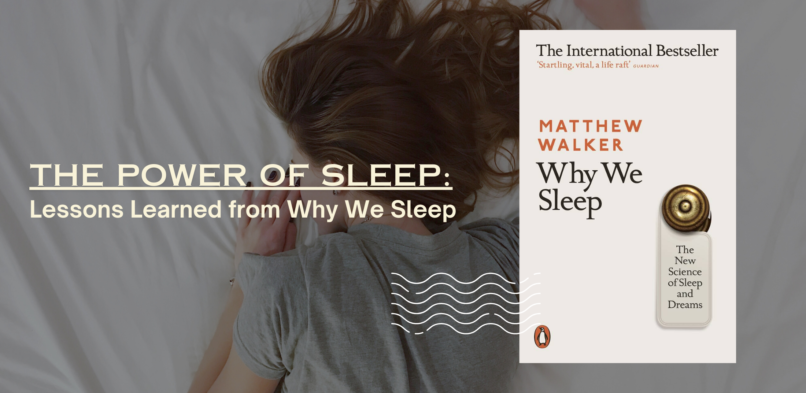The Power of Sleep: Lessons Learned from ‘Why We Sleep’

The Power of Sleep: Lessons Learned from ‘Why We Sleep’
December 3, 2023 No Comments on The Power of Sleep: Lessons Learned from ‘Why We Sleep’I got up groggily this morning close to noon; we were socializing till well after 3 am last night. My head was heavy, and I felt disoriented. And before you prescribe me a hangover remedy, let me tell you I don’t even consume alcohol. Let me unwillingly admit that it is the 40s. I have been reading Matthew Walker’s book, Why We Sleep. It has been a disclosure, and a kick in the backside on how casually I treated a good-night’s sleep until a few years ago.
The book is a comprehensive and eye-opening exploration of the science of sleep. The book emphasizes that sleep is not a luxury, but a necessity for our physical and mental health. The author delves into the many benefits of sleep, including its role in memory consolidation, learning, emotional regulation, and physical health. He also discusses the dangers of sleep deprivation, which can lead to a host of problems, including impaired cognitive function, increased risk of accidents, and chronic diseases.
Admittedly, I skimmed over some of the more research and scientific data kind of information in the book. That is more for people who may be interested in research and may want to remember some of the studies that were conducted to reach these conclusions.
Here are some of the key lessons I learned from Why We Sleep:
- Sleep is essential for our physical and mental health. When we sleep, our bodies have a chance to repair themselves and our minds have a chance to consolidate memories and process emotions. There are four stages of sleep: NREM 1, NREM 2, NREM 3, and REM sleep. Each stage of sleep has a different function and impacts us differently.
- Most adults need around 7-8 hours of sleep per night. However, the amount of sleep we need varies from person to person. Some people may need as little as 6 hours, while others may need as much as 9 hours. Children and adolescents need even more sleep than adults. I try to make sure my son sleeps for 10 hours a night. I also let myself sleep extra on weekends when we have no plans.
- The quality of our sleep is just as important as the quantity. If we are not getting restful sleep, our bodies and minds will not be able to function properly. Meditating before sleep has improved my quality of sleep tremendously in the past few months.
- There are many things we can do to improve our sleep habits. These include establishing a regular sleep schedule, creating a relaxing bedtime routine, and avoiding caffeine and alcohol before bed. The Indian way of ensuring a good sleep is having a warm cup of plain or turmeric milk just before bed.
- Sleep deprivation is a serious problem that can have a negative impact on our health and well-being. If you are struggling to get enough sleep, there are many resources available to help you.
- The role of dreams in sleep. I have been guilty of over analyzing my dreams, and being a lucid dreaming, remember most of them vividly in the morning. The book however emphasizes that dreams are a way for our minds to process emotions and consolidate memories.
Why We Sleep is a must-read for anyone who wants to learn more about the importance of sleep. The book is packed with fascinating information and is written in an engaging style. I highly recommend it to anyone who is interested in improving their sleep habits and their overall health.
Here are some additional resources:
- The National Sleep Foundation: https://www.sleepfoundation.org/
- The American Academy of Sleep Medicine: https://aasm.org/
- The Centers for Disease Control and Prevention: https://www.cdc.gov/sleep/

Leave a comment